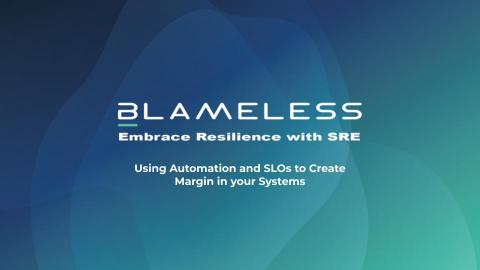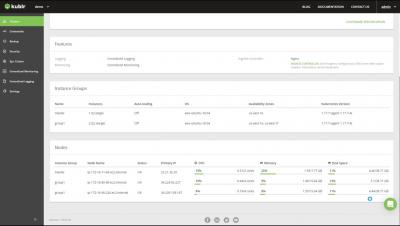Operations | Monitoring | ITSM | DevOps | Cloud
DevOps
The latest News and Information on DevOps, CI/CD, Automation and related technologies.
Understanding Amazon Elastic Container Service for Kubernetes (EKS)
Amazon Elastic Container Service for Kubernetes or EKS provides a Managed Kubernetes Service. Amazon does the undifferentiated heavy lifting, such as provisioning the cluster, performing upgrades and patching. Although it is compatible with existing plugins and tooling, EKS is not a proprietary AWS fork of Kubernetes in any way. This means you can easily migrate any standard Kubernetes application to EKS without any changes to your code base.
The 2020 State of DevOps survey: quarantine edition
Normally we would have launched our 2020 State of DevOps survey a couple of months ago instead of today. But with all of us adjusting to working from home, often with kids also at home or other loved ones to care for, we recognized that the last thing anyone should focus on was taking a survey. So we’re late. The additional time to plan, however, gave us the chance to consider some new and interesting pathways to explore.
Your Mac Is Fast. You Are Not.
I can tell you the day I knew I would be a Systems Administrator (the term SRE hadn’t been invented yet.) My Linux professor, a brilliant engineer at NASA, said: "The best system administrators are the laziest." He went on to qualify that statement but I had stopped listening. My fate was sealed.
Using Automation and SLOs to Create Margin in your Systems
Kublr, enterprise-grade Kubernetes -- an overview (short demo)
Logging Best Practices in the CI/CD Era
What is Rancher?
Observability: From Push to Production
Developers are building and deploying to production with greater frequency. Elite organizations are deploying to production multiple times per day. All the while we continue to distribute our applications even wider with the adoption of micro-services, and global deployments. This consistent churn and increasing code complexity create the perfect storm that makes finding problems even harder. How do you know the changes just committed actually deployed? How do you know the changes worked?
Log aggregation and the journey to optimized logs
Ever experienced bad logging- whether it’s the wrong log, the wrong information, or a multitude of other logging woes? We aren’t able to count the number of times anymore that we’ve happily gone and set log lines, only to find out that it was all for naught. The frustrations are endless. What is meant to be magic for your code, the ultimate savior when debugging, has become the ultimate frustration.











